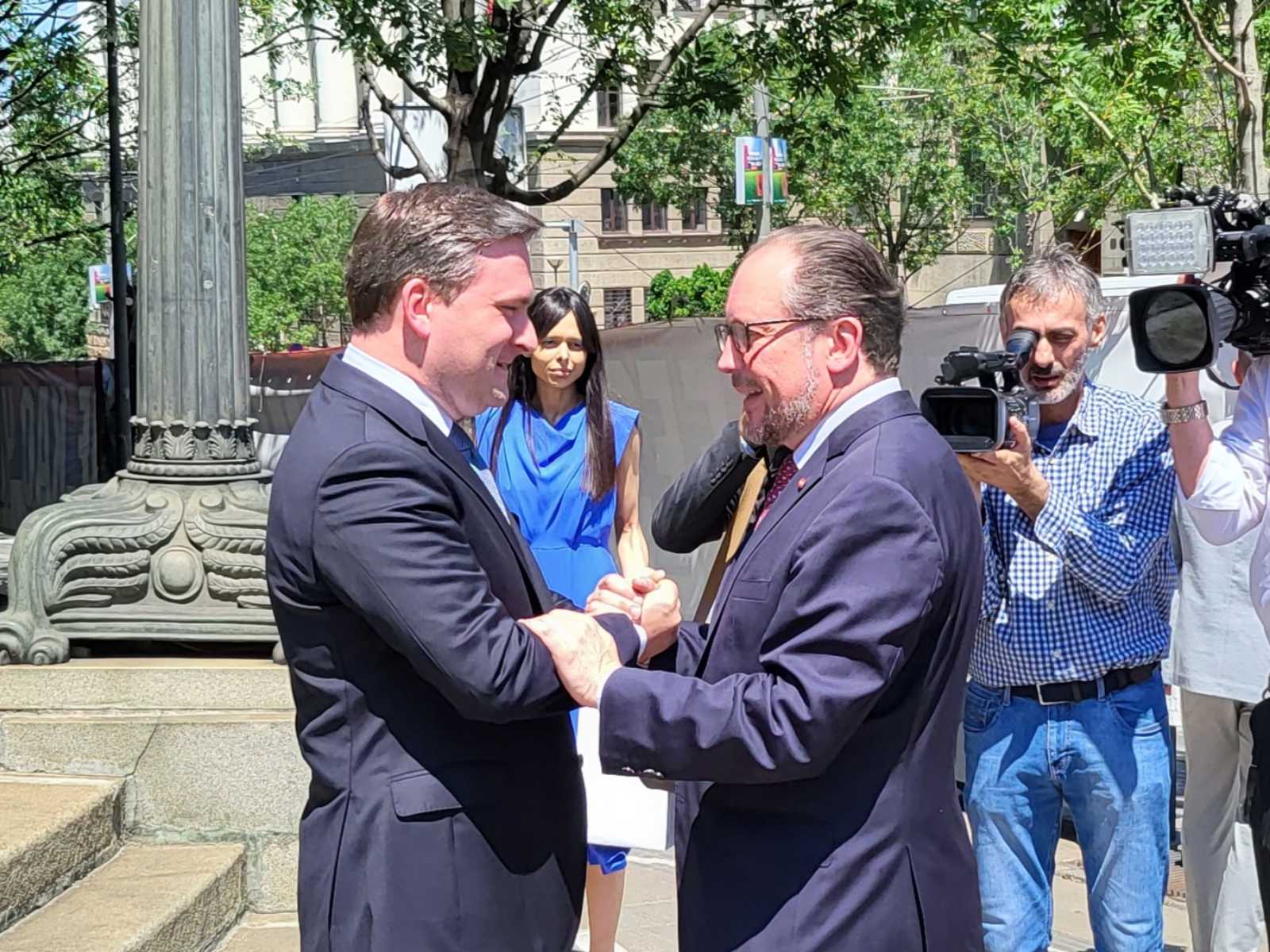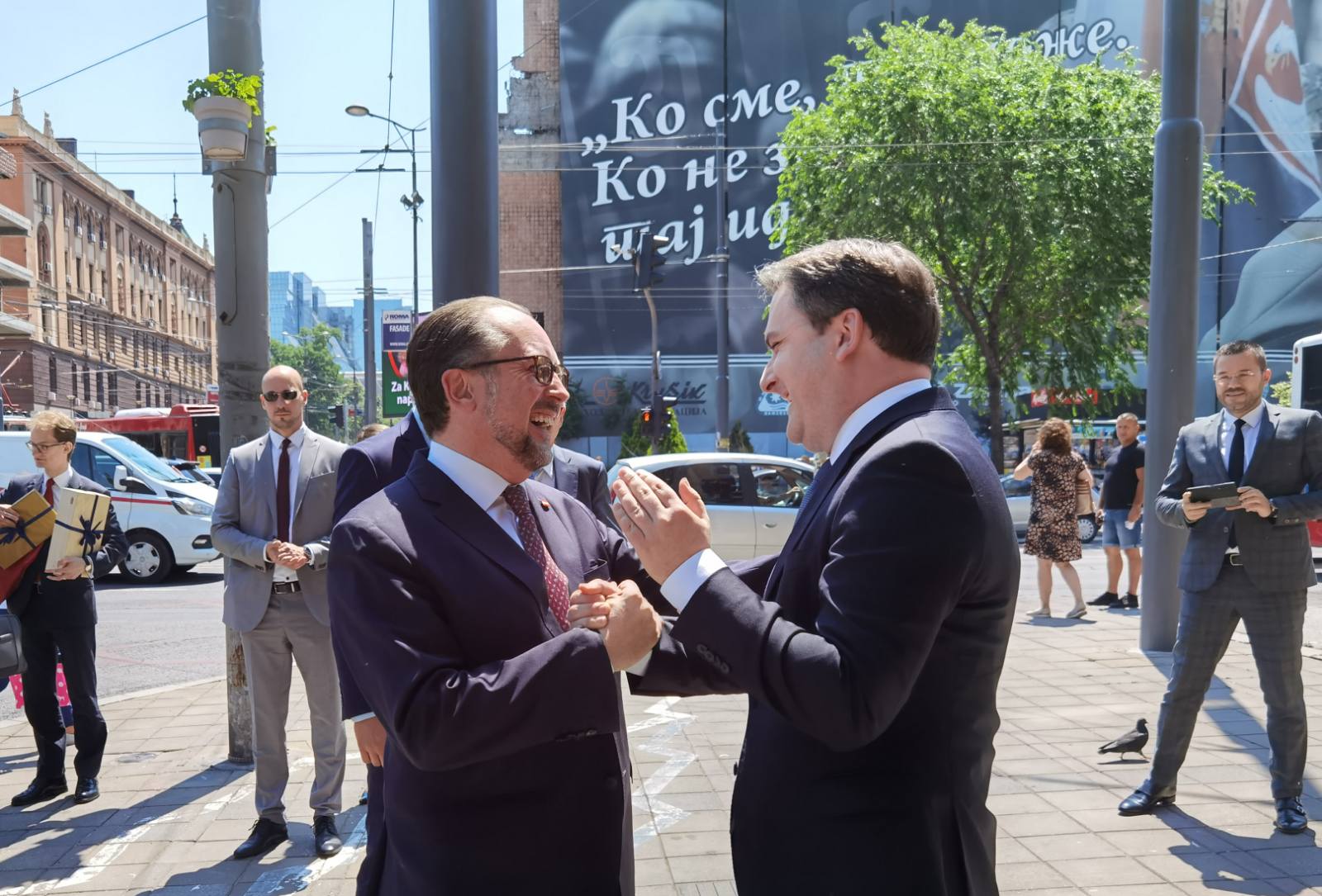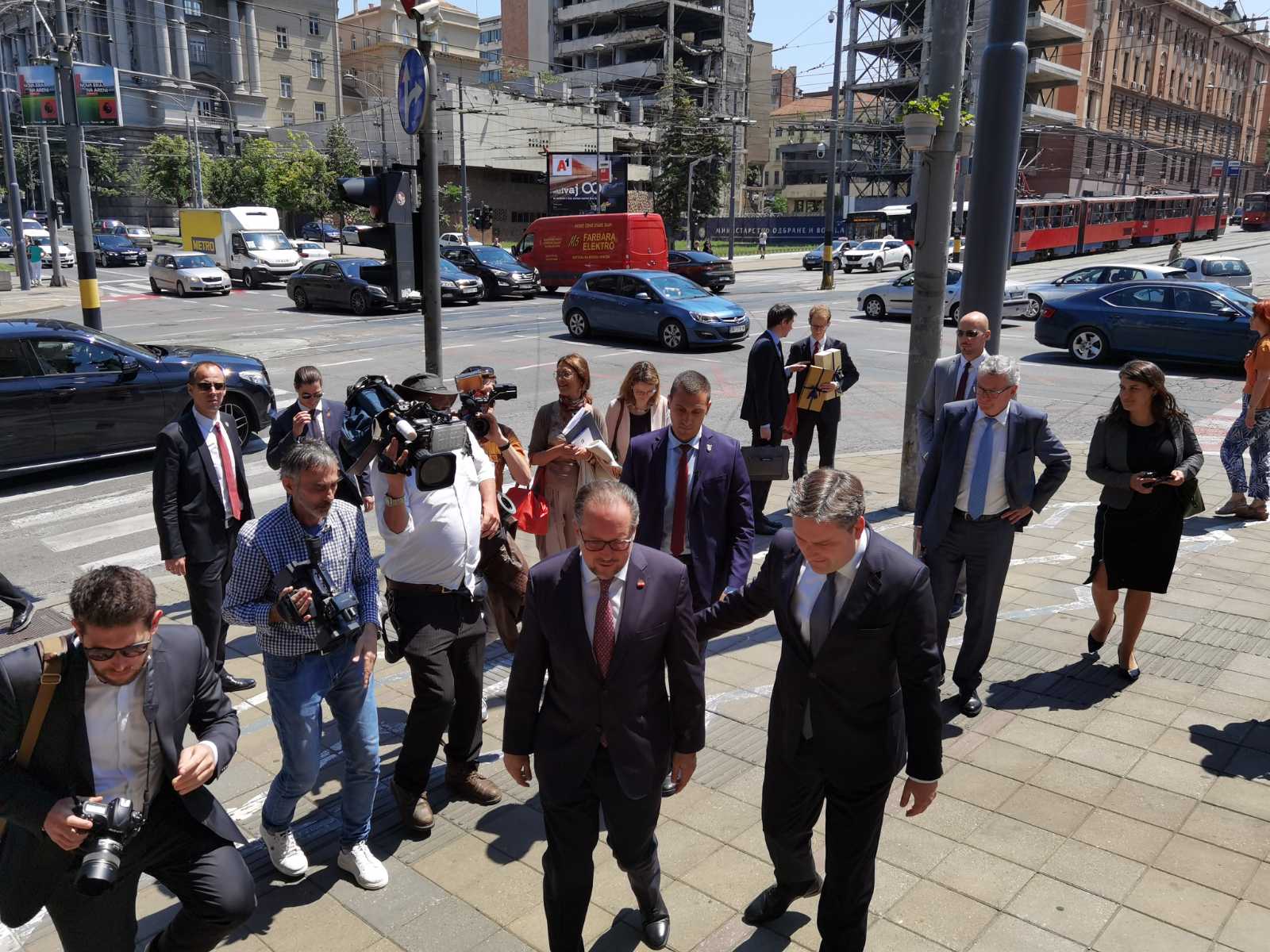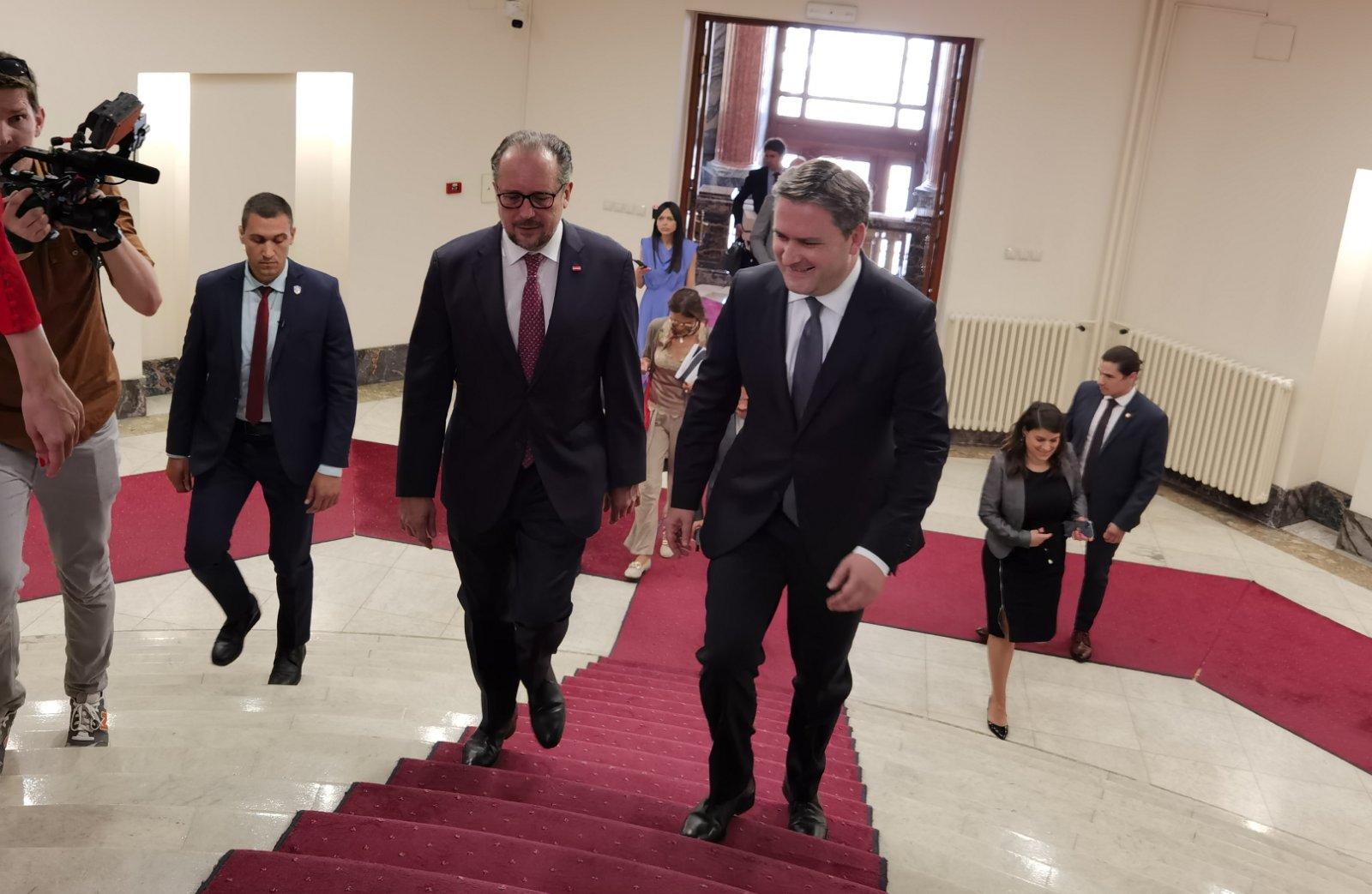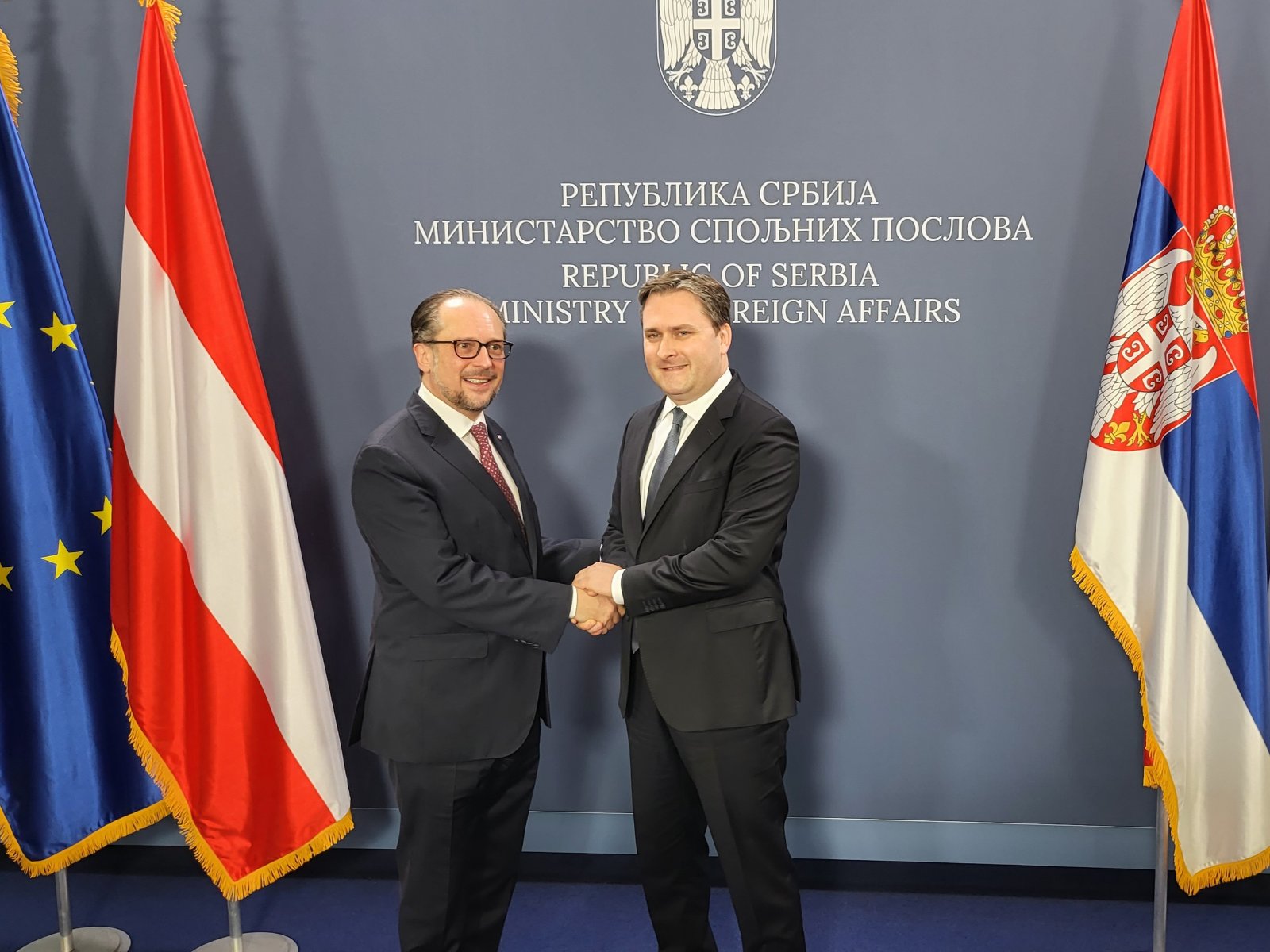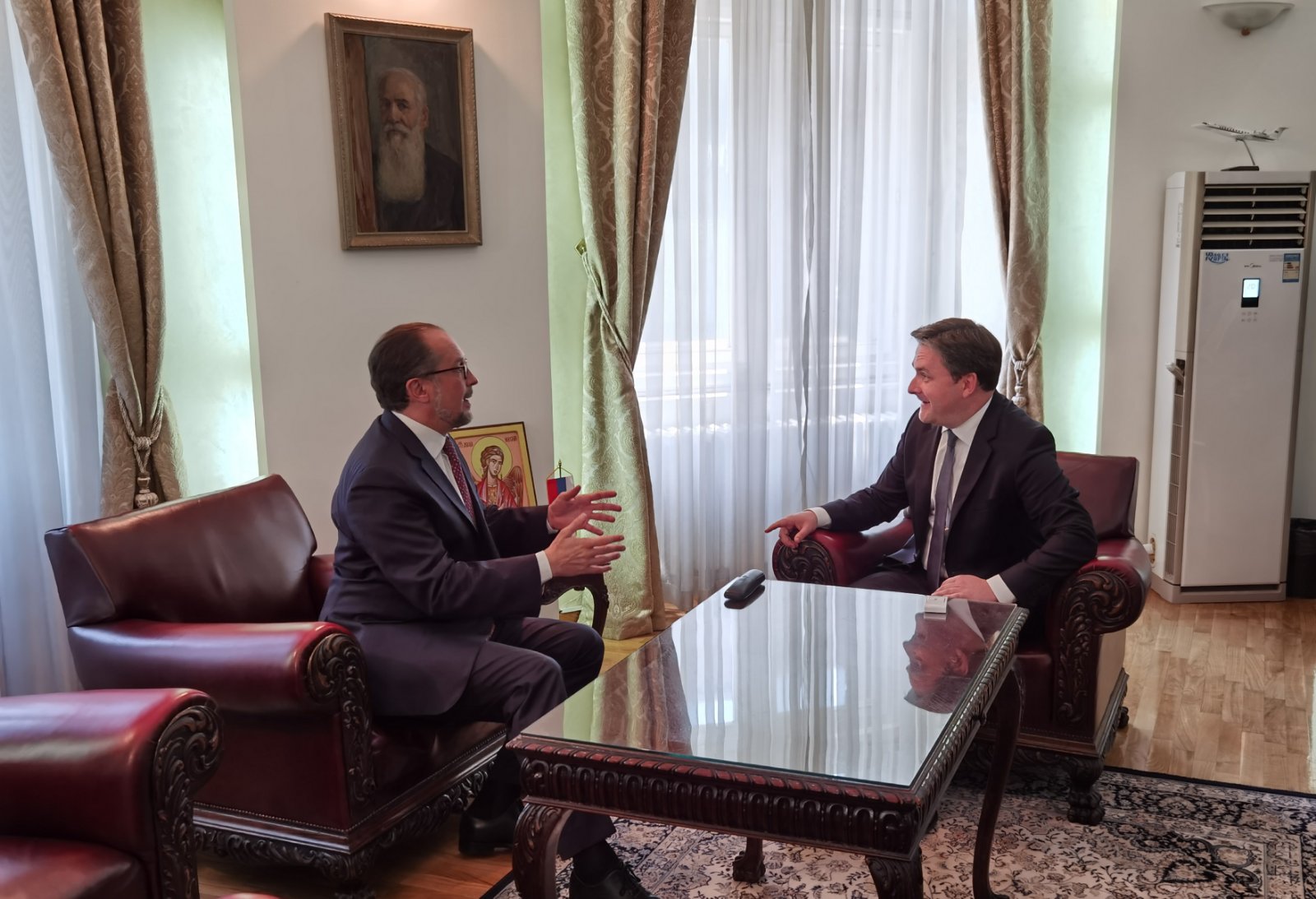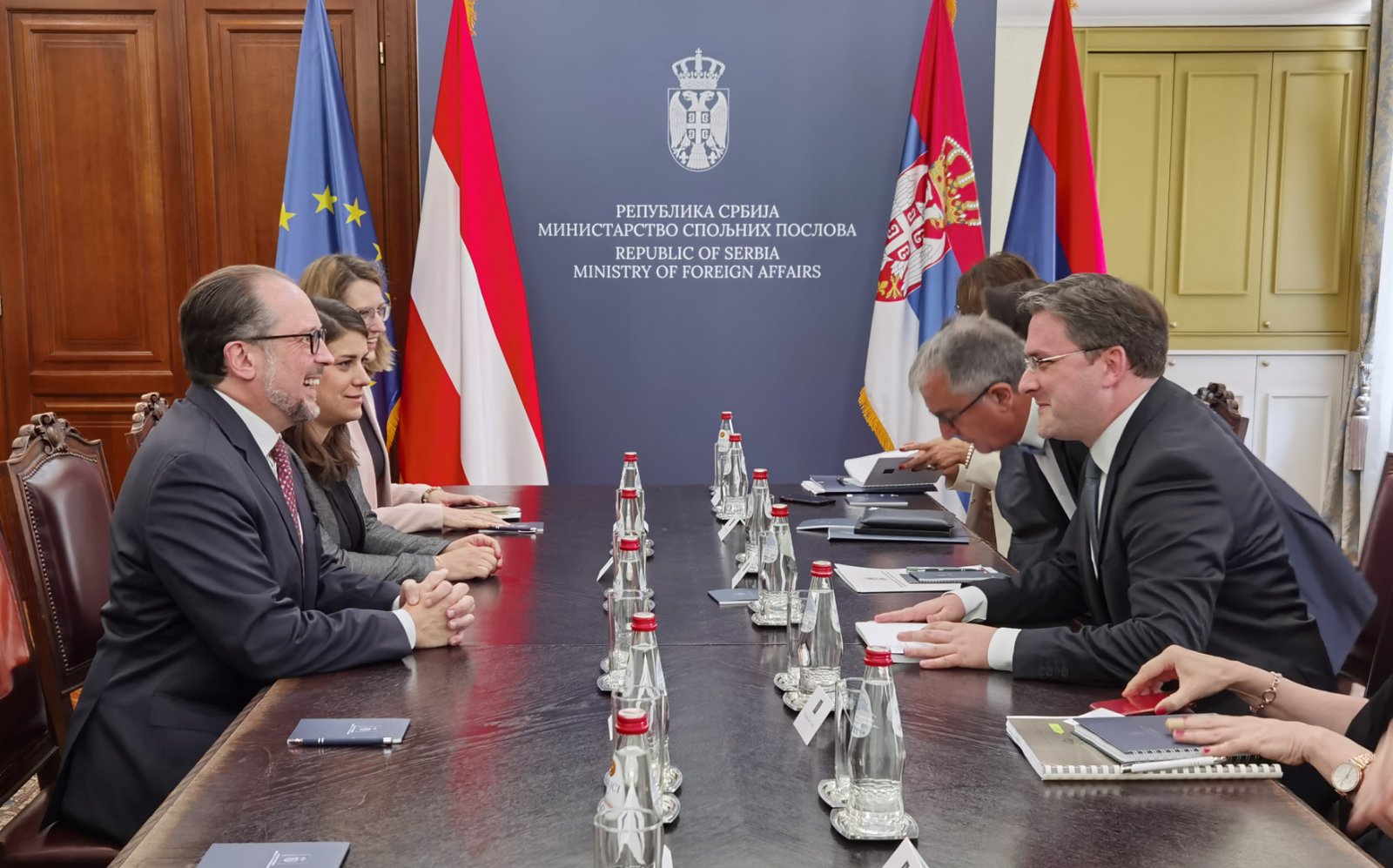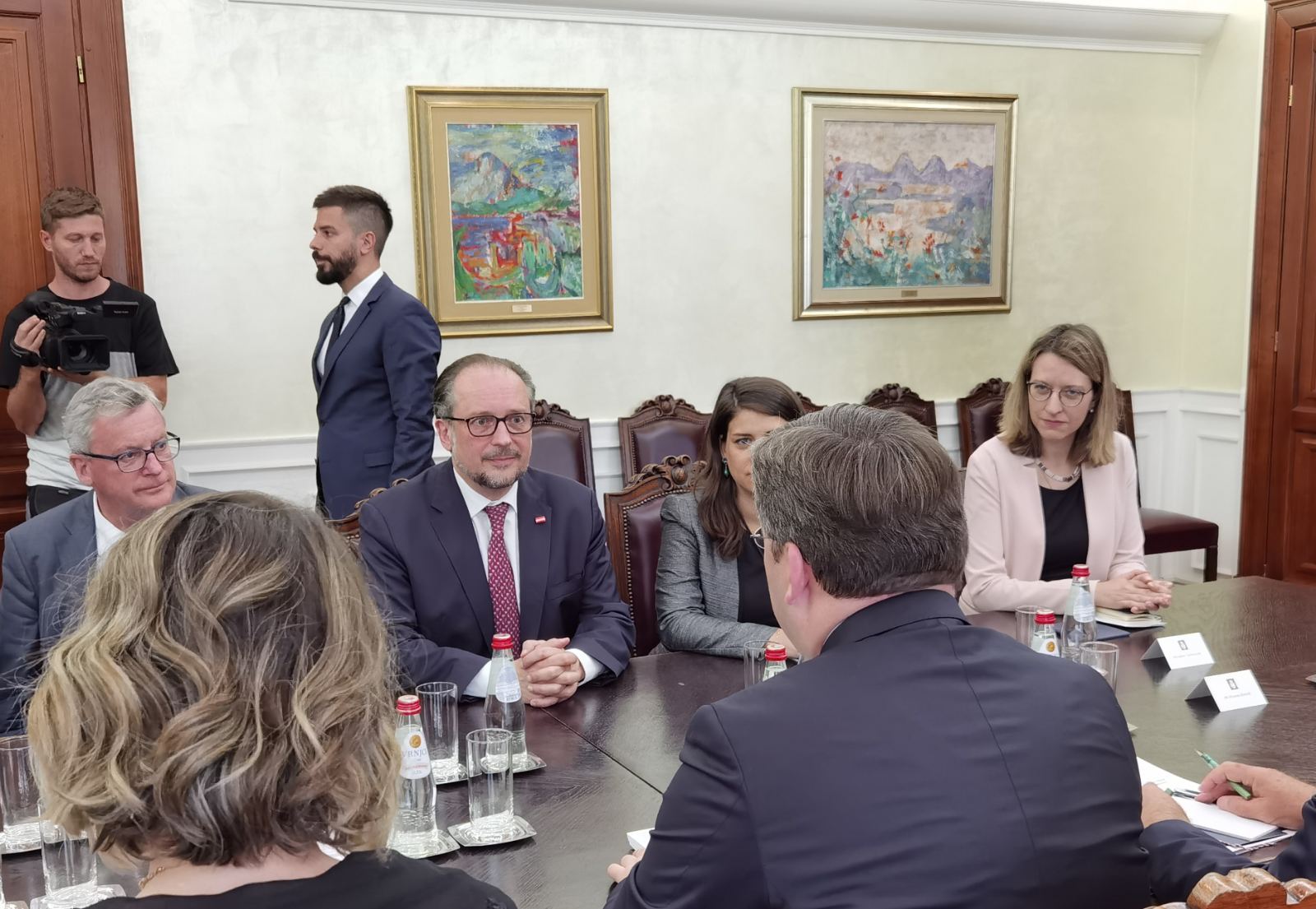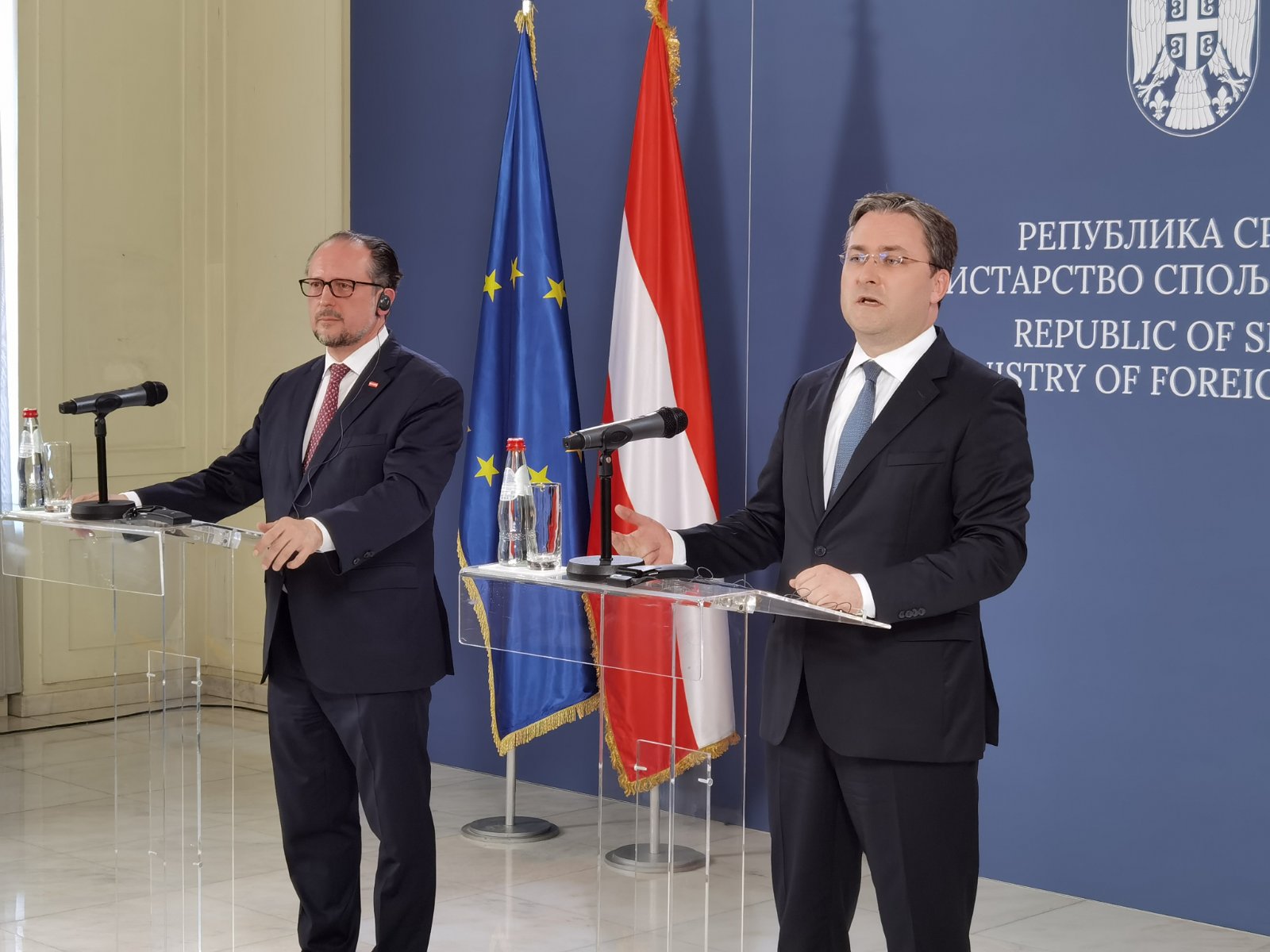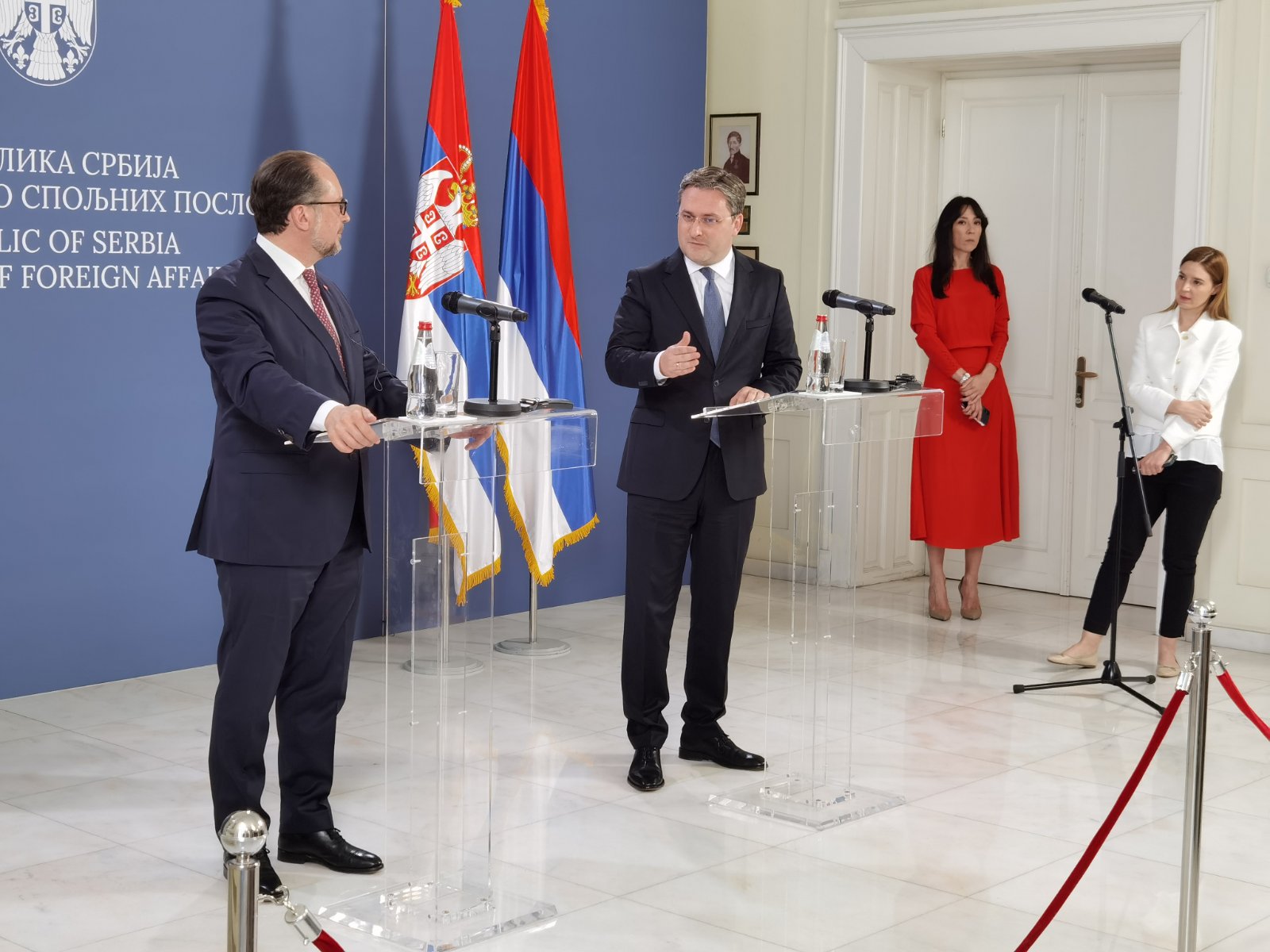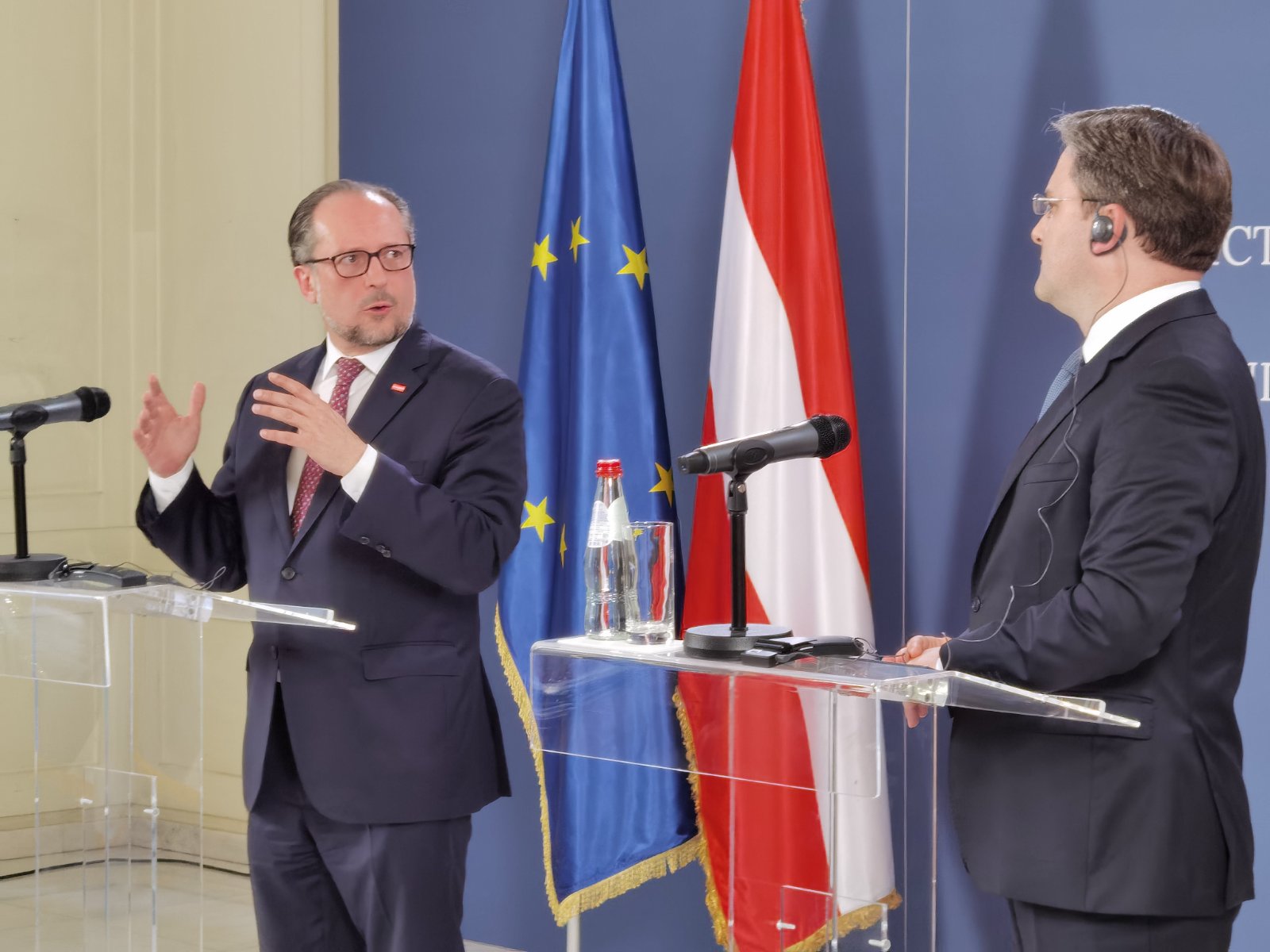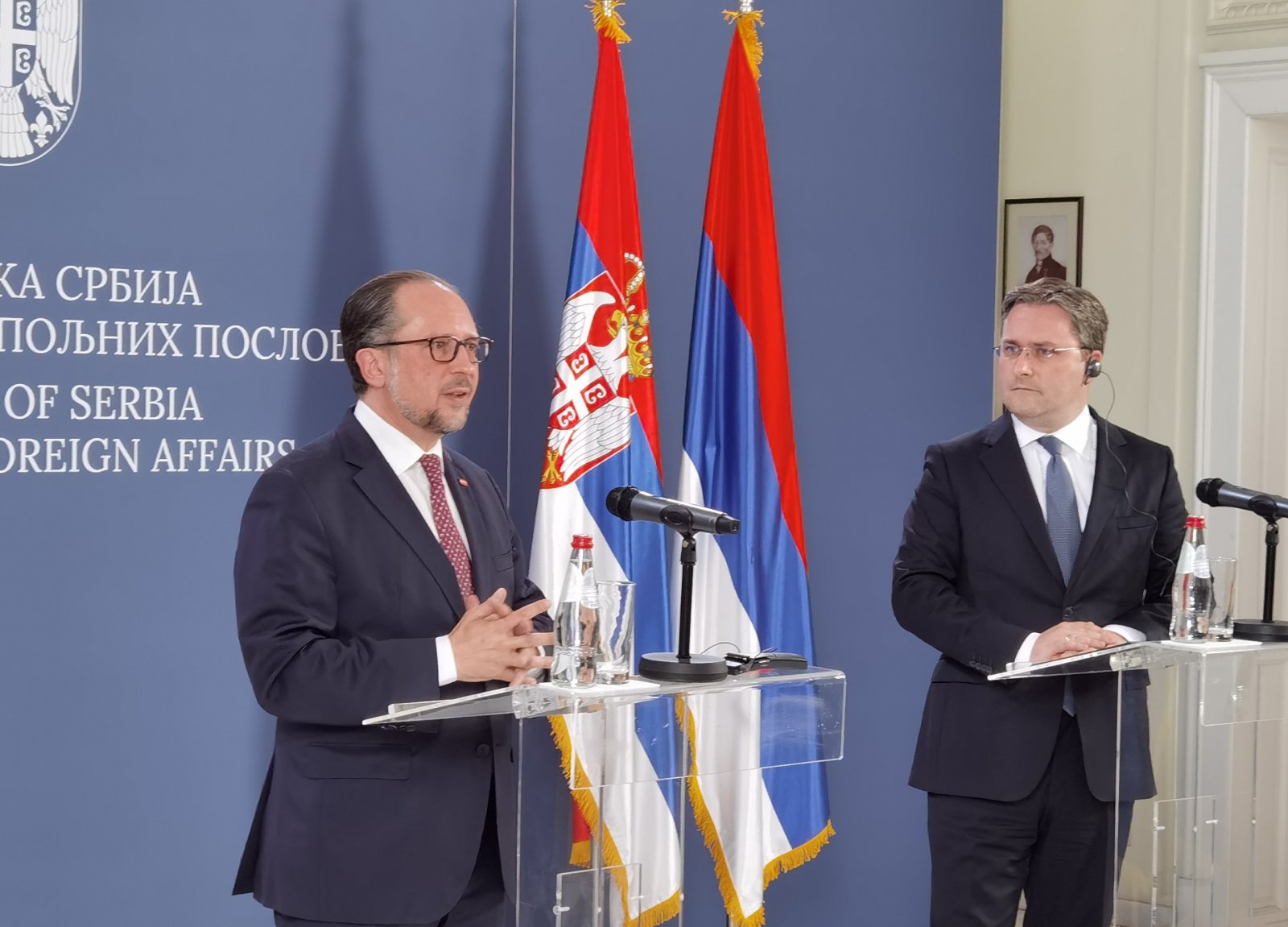Sincere friendship between Serbia and Austria
At the press conference, Minister Selaković said that he had talked with his Austrian counterpart about the most important bilateral and international matters, and noted that their conversations were always friendly and sincere.
Minister Selaković stated that Serbia was interested in further developing a partnership with Austria. He stressed that Austria was the third largest investor in Serbian economy, and that Austrian companies employed 22,400 Serbian citizens.
Minister Selaković thanked Austria for its unambiguous support to Serbia on its European path. He added that Serbia highly appreciated the non-paper recently presented by Minister Schallenberg and the Minister for the EU and Constitution of Austria, and emphasised that it demonstrated that Austrian support to EU enlargement was not just pro forma, but a genuine commitment.
Furthermore, Minister Selaković stated that he had informed Minister Schallenberg about the Open Balkan initiative which, as he said, contributed to the improvement of the living standard in Serbia and the country’s better preparation for EU accession.
Asked to comment on the fact that Prime Minister of Greece Mitsotakis had recently said that he wanted the entire Western Balkans to be a part of EU by 2033, Minister Selaković said that Greece was one of the promoters of the integration of Southeast Europe in EU, but that this was a question that should also be posed to all other Member States.
“This is not just a question of where Serbia is, but also where EU is, and whether EU wants all Western Balkan countries as its Member States, and under which conditions”, said Minister Selaković.
Minister Selaković repeated that Serbia was committed to remaining on its European path and reforming its society, but that its path towards EU did not depend on Serbia only.
He also said that he had talked with Minister Schallenberg about the situation in the region, particularly in Kosovo and Metohija and in Bosnia and Herzegovina, as well as about the war in Ukraine. Asked why Serbia had not joined the sanctions against Russia, Minister Selaković stated that Serbia had been a part of a country which was under international sanctions, and that these sanctions had not done anyone any good.
“From the beginning of the crisis in Ukraine, we have clearly expressed our position and condemned Russia's actions, and we have said that we are strongly committed to respecting territorial integrity and sovereignty of all internationally recognised UN Member States”, said Minister Selaković. He stressed that Serbia respected the territorial integrity of Ukraine, and would always advocate for it, as Serbia’s own territorial integrity had, in his words, also been violated.
“Our national interest is our first priority. EU accession is a process that has lasted 19 years and nobody knows when it will end, and our citizens need to survive in the meantime”, concluded Minister Selaković.
Minister Schallenberg stated at the press conference that there was a strong human and cultural bridge connecting Serbia and Austria, reflected in the presence of Austrian investors in Serbia and their interest in intensifying their activities.
He said that it was of essential geostrategic importance for EU to clearly express its expectation for the Western Balkans to become an unambiguous part of the European family, thus protecting the region from any potential destabilisation.
“In this regard, Austria has made a proposal regarding integration. Nineteen years ago, we - the EU - promised the prospect of accession to these countries. It has been a long time. We should now finally do something concrete. Our suggestion is to treat these countries as full members, step by step, policy area by policy area”, said Minister Schallenberg.
As regards regional stability, Minister Schallenberg stated it was important that there was a common regional market and that the Berlin process had been an idea incubator about this kind of cooperation in the Western Balkans.
He also highlighted how important it was to gradually normalise the relations between Belgrade and Pristina, stating that this process was the “eye of a needle” through which the entire region must pass.
“The ideas we have presented in the Austrian non-paper are the same ideas I have been stating for a long time. We cannot afford to continue thinking in a conventional, close-minded way. This process has been too bureaucratic. We must find a way to convince people, both in the EU and in the candidate countries, that this is something we truly believe in, and that EU accession is not something ten years away, but something that may bring concrete results right now”, said Minister Schallenberg.
He explained that Austria had close connections with the Balkans, and that its fundamental interest lied in that region's progress towards prosperity, which was possible only within the EU. In his words, the prospect of EU integration was not a one-way street, as a fundamental shake-up of the European system of values and security was looming over everyone, and no one was able to be just an observer anymore.
“We were pleased to see that all the countries of the region, including Serbia, had their clearly defined positions at the UN General Assembly. I plead that these positions continue to be upheld. As the biggest country in the region, Serbia has a special responsibility. I believe we share a common interest and wish for this war to end as soon as possible”, said Minister Schallenberg.

